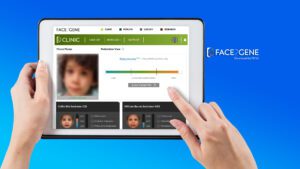
Fetal Fentanyl Syndrome: Unveiling a New Syndrome Linked to Fentanyl Use During Pregnancy
Dr. Karen Gripp, MD, Chief of the Division of Medical Genetics at Nemours Children’s Health in Wilmington, has been at…
January 11, 2019
“Deep learning algorithms spot genetic disorders better than doctors by analyzing a patient’s facial features. FDNA analyzes photographs of faces using computer vision and deep learning algorithms. FDNA has analyzed more than 150,000 cases to date. The company amassed its database by building a community platform called Face2Gene that clinical geneticists can use for free. The doctors upload images into the system (with consent from the patient) and in return get to use the platform to help them narrow down the disease possibilities of their patients.”
The IEEE Spectrum article examines the capabilities of Face2Gene, an AI-driven tool developed by FDNA, in identifying rare genetic disorders through facial analysis. Face2Gene employs advanced machine learning algorithms to scan patients’ facial photos and detect phenotypic markers associated with genetic conditions. This technology significantly enhances diagnostic accuracy, allowing healthcare professionals to identify and treat genetic disorders more effectively and earlier than traditional methods. The article highlights the tool’s impact on personalized medicine, providing valuable support in clinical settings.

Dr. Karen Gripp, MD, Chief of the Division of Medical Genetics at Nemours Children’s Health in Wilmington, has been at…

Dr Giulia Pascolini, an esteemed Italian M.D. and Ph.D., is currently responsible for the Genetic Counselling Service of the Istituto…

Founded in 2017, the Spanish Coffin Siris Syndrome Association is an organization dedicated to supporting families affected by this rare…